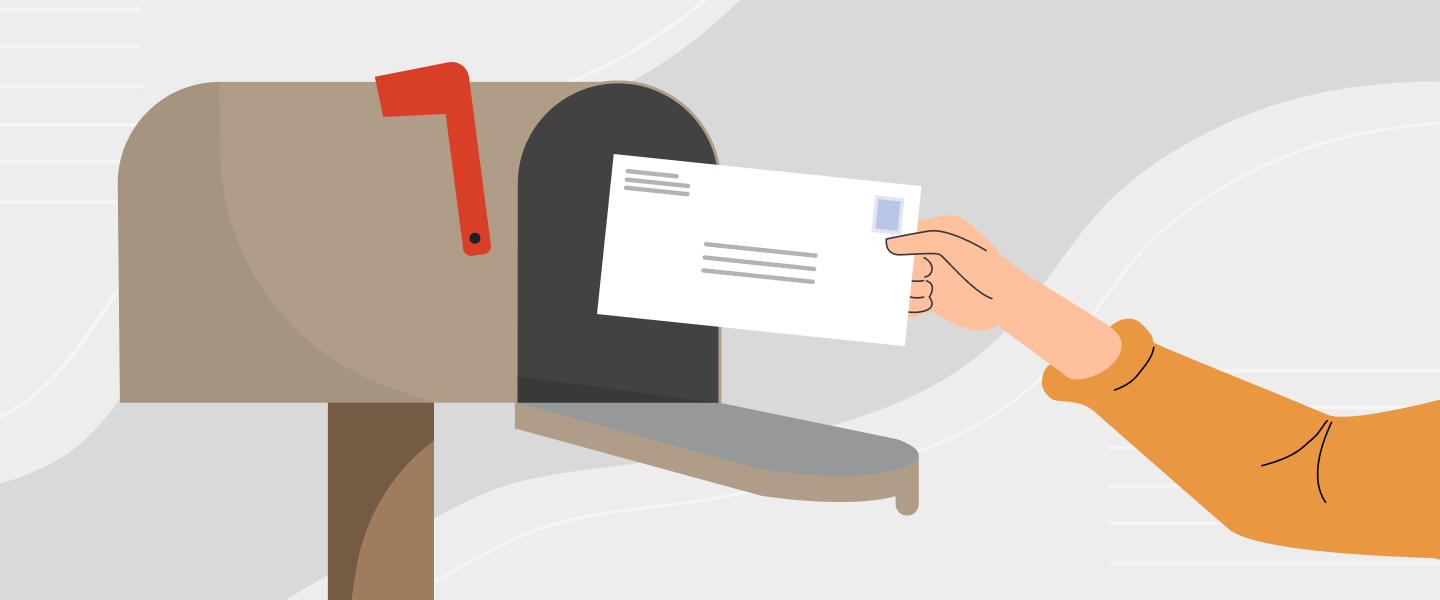
The mailbox rule frequently appears on law school exams and the bar exam, but it’s nothing to fear. The mailbox rule governs when an acceptance is effective if an offeror and offeree aren’t communicating instantaneously.
It can be easy to assume that because of its name, the mailbox rule doesn’t have any real-world application today. Who but our grandparents actually uses the postal system anymore? But the mailbox rule applies whenever there’s some lag between sending and receipt, which can happen with many different communication methods.
To spot a mailbox-rule issue, watch out not only for parties that use mail but also for parties that use any noninstantaneous method of communication, including email, text, facsimile, or courier.
It can be easy to assume that because of its name, the mailbox rule doesn’t have any real-world application today. Who but our grandparents actually uses the postal system anymore? But the mailbox rule applies whenever there’s some lag between sending and receipt, which can happen with many different communication methods.
To spot a mailbox-rule issue, watch out not only for parties that use mail but also for parties that use any noninstantaneous method of communication, including email, text, facsimile, or courier.
When Acceptance Becomes Effective
The time line of communication is important in determining when an acceptance (or revocation) occurs under the mailbox rule.
General rule: Acceptance effective upon proper dispatch
Under the mailbox rule, an acceptance is effective when it’s properly dispatched. For those actually using the mail, an acceptance is properly dispatched if it is sent with the correct address and proper postage. Once properly dispatched, the acceptance is effective, even if it is delayed or never received by the offeror.
Improperly dispatched acceptance effective upon receipt
An improperly dispatched acceptance is effective upon receipt unless the offeror actually receives it within the time in which a properly dispatched acceptance would’ve been received.
After spotting a mailbox issue, look for facts about how the acceptance was addressed. If the acceptance was dispatched improperly, nail down the timeline. Did the offeror actually receive the acceptance? If so, how long did it take to arrive relative to a properly dispatched acceptance?
Why does it matter precisely when an offeree’s acceptance is effective? Recall that an offeror may revoke an offer at any time before acceptance. The mailbox rule helps identify whether an offeror still has the power to revoke an offer or whether a binding contract has formed because the offeree has accepted.
After spotting a mailbox issue, look for facts about how the acceptance was addressed. If the acceptance was dispatched improperly, nail down the timeline. Did the offeror actually receive the acceptance? If so, how long did it take to arrive relative to a properly dispatched acceptance?
Why does it matter precisely when an offeree’s acceptance is effective? Recall that an offeror may revoke an offer at any time before acceptance. The mailbox rule helps identify whether an offeror still has the power to revoke an offer or whether a binding contract has formed because the offeree has accepted.
Getting wires crossed: Simultaneous revocation and acceptance
Remember, an offeror’s revocation of the offer isn’t effective until the offeree receives it. But an offeror can’t revoke an offer that an offeree has accepted, which can occur as soon as the acceptance is properly dispatched (and before the offeror receives it). Thus, if an offeree were to properly dispatch an acceptance at the same time the offeror sent word of revocation, a contract would form: the acceptance is effective once properly dispatched, but the revocation isn’t.
The timeline is important in analyzing any mailbox-rule fact pattern. Circle, underline, or highlight any dates, and determine when an acceptance or any attempted revocation occurred.
The timeline is important in analyzing any mailbox-rule fact pattern. Circle, underline, or highlight any dates, and determine when an acceptance or any attempted revocation occurred.
Offeree’s change of heart
The mailbox rule can also create headaches for offerees who change their minds. If an offeree transmits a properly dispatched acceptance but later changes his mind, the offeree cannot undo his acceptance because it was already effective when properly dispatched. In contrast, if an offeree first transmits a rejection and then transmits an acceptance, the mailbox rule doesn’t apply. In that case, whichever communication the offeror actually receives first is effective. If the rejection arrives first, the subsequently arriving acceptance is treated as an offer to enter a contract on the terms contained in the acceptance.
When the Mailbox Rule Doesn’t Apply
Finally, keep in mind that there are several circumstances in which the mailbox rule doesn’t apply. Because the offeror remains the master of the offer, the mailbox rule doesn’t apply if the terms of the offer set out a different time when acceptance is effective. The mailbox rule also doesn’t apply to acceptance of option contracts or of unilateral contracts.
Quimbee has your back in law school and beyond. Get up to speed on the mailbox rule and a host of other contract-law issues with video lessons, essay practice exams, and multiple-choice questions. Check out Quimbee Bar Review+ to explore the features that are helping students across the country pass the bar exam on their first attempt.
Quimbee has your back in law school and beyond. Get up to speed on the mailbox rule and a host of other contract-law issues with video lessons, essay practice exams, and multiple-choice questions. Check out Quimbee Bar Review+ to explore the features that are helping students across the country pass the bar exam on their first attempt.







